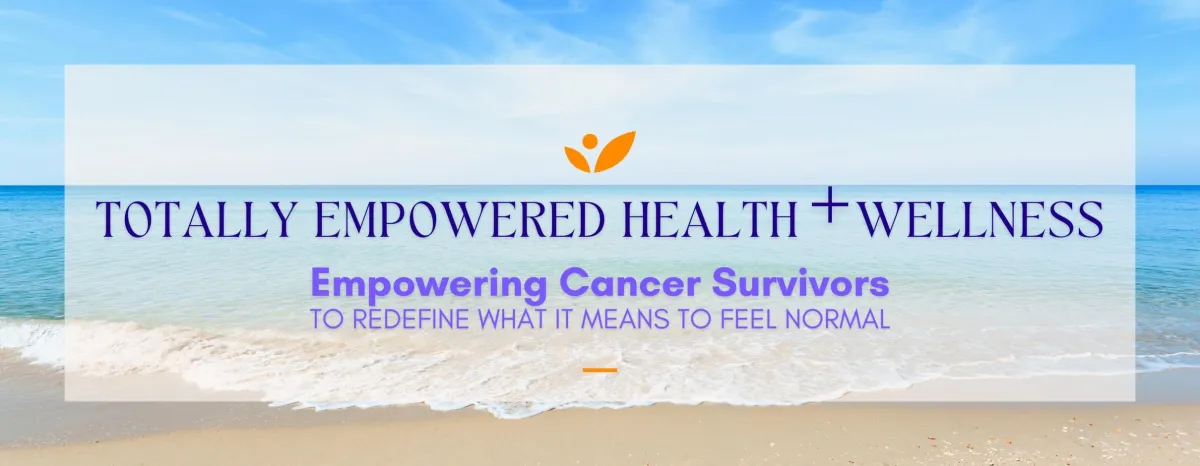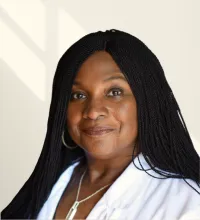
Welcome to Empowerment Insights

Moving Beyond Survivor Guilt After Cancer: 10 Empowering Ways to Reclaim Your Joy
Introduction: When Survival Feels Heavy
You beat cancer—but now there’s this invisible weight on your chest. Maybe it’s the memory of someone you met during treatment who didn’t make it. Maybe it’s just a persistent whisper in your mind: “Why me? Why did I survive?”
That feeling? It has a name: survivor guilt.
It’s more common than anyone admits—and it's completely human. But while it’s normal to feel this way, it doesn’t mean you’re meant to stay stuck in guilt. This isn’t your final emotional chapter.
What Is Survivor Guilt?
Survivor guilt is a form of emotional distress that occurs when someone has lived through a traumatic or life-threatening event, like cancer, and feels guilt about surviving when others didn’t. It can be quiet and subtle—or overwhelming and constant.
It often shows up as:
● Feeling unworthy of your survival
● Avoiding joy because others didn’t get that chance
● Questioning your purpose or path forward
Why Does Survivor Guilt Happen?
Survivor guilt is tangled with grief, comparison, and trauma. You may think of fellow patients who didn’t make it or feel like you didn’t “suffer enough” to deserve the outcome you got. These thoughts don’t reflect reality—they reflect the emotional rollercoaster of recovery.
It’s not logical. It’s emotional processing.
When Survival Doesn’t Feel Like Living
Not every survivor feels guilty because they’re thriving while others aren’t. Some feel guilty because they’re not thriving. Maybe you imagined a post-cancer life filled with gratitude and second chances, but instead, you’re exhausted, anxious, or in pain.
This version of survivor guilt is just as real—and just as valid.
● “Why do I feel so empty when I should be grateful?”
● “I survived, but I’m not living the life I thought I’d have.”
● “I feel like I’m wasting my second chance.”
These thoughts can weigh heavy, especially when others expect you to be back to normal. But it’s important to remember: healing doesn’t follow a timeline, and your struggle doesn’t mean you’re doing anything wrong.
You’re allowed to feel frustrated. You’re allowed to mourn the life you hoped to return to. You’re allowed to ask for help—even now. Joy doesn’t always return overnight. Sometimes, it returns in fragments. Sometimes, we have to create space for it in the midst of fatigue.
And that is okay.
The Emotional Fallout of Survivor Guilt
If left unchecked, survivor guilt can erode your well-being. It might show up as:
● Chronic sadness
● Shame or emotional numbness
● Avoidance of social situations
● Difficulty celebrating your milestones
The good news? You can unlearn this emotional reflex.
1. Acknowledge It Without Shame
Name what you’re feeling. Say it out loud. Journal it. Tell someone you trust. The act of recognizing survivor guilt begins the healing process. It stops being a shameful secret and becomes a shared human experience.
2. Understand the Biology of Emotion
Your brain is still recovering from trauma. It’s wired to protect you and sometimes misfires. Guilt may be your brain’s attempt to make sense of randomness. But you don’t owe the universe an explanation for surviving.
3. Talk to Someone Who Gets It
Find a survivor group or therapist familiar with post-cancer emotional recovery. Sharing your story in a space where others nod in recognition can dissolve the isolation and bring tremendous relief.
4. Write It Out
Use journaling to explore:
● “What do I wish others knew about how I feel?”
● “What would I tell a friend feeling this way?”
● “What am I afraid of if I let go of this guilt?”
Writing gives your emotions structure and often reveals a path forward.
5. Serve in a Way That Heals, Not Depletes
If giving back feels right, do it—but don’t let guilt be the fuel. Share your story, mentor a newly diagnosed patient, or advocate for awareness only if it brings meaning, not pressure.
6. Reconnect With Joy Without Guilt
You don’t need to earn joy. It’s part of being alive. Laugh. Travel. Dance. Make love. Let lightness exist alongside your memories. You’re honoring others by living fully—not by shrinking in grief.
7. Make Peace With the “Unfairness”
Life isn’t fair—but that doesn’t mean your survival is a mistake. You don’t have to carry the weight of the world. Hold grief and grace together. There’s room for both.
When Survivor Guilt Becomes Depression
If guilt persists and you notice:
● Persistent low mood
● Withdrawal from others
● Sleep or appetite changes
● Suicidal thoughts
...seek professional help. There’s no shame in needing support.
Survivor Guilt in the Context of Community
Culture, family, and community often shape how we process survival. In some communities, survival may bring a sense of “responsibility” to speak for the lost. In others, it may bring silence. Recognizing these influences can help you choose a path that’s yours—not someone else’s.
FAQs About Survivor Guilt After Cancer
Q1: Is survivor guilt normal after cancer?
Yes. It’s incredibly common among cancer survivors and a valid part of emotional recovery.
Q2: Will I always feel this way?
No. With time, support, and self-compassion, guilt can fade and joy can return.
Q3: Can I feel grateful and guilty at the same time?
Yes. Humans are complex. It’s okay to hold seemingly opposite feelings at once.
Q4: Is therapy necessary for survivor guilt?
Not always, but it’s often helpful—especially if guilt is affecting your life or relationships.
Q5: Can survivor guilt affect my physical health?
Indirectly, yes. Chronic emotional stress can impact your immune system and overall wellness.
Q6: What if I feel pressure to “do something big” with my life now?
Your life doesn’t need to be grand to be meaningful. Living authentically is enough.
Conclusion: You Deserve This Life
Survivor guilt is a sign that you loved, you grieved, and you’re human. But your healing journey includes joy, too. You didn’t survive to simply carry guilt—you survived to live.
You are allowed to be here. To celebrate. To breathe deeply. To dream again.
Read more blog posts like this one right here:
Don't Delay
Book Your Total Empowered Consultation call today!
Take control of your recovery and start feeling better today.
Book a Discovery Session with us to share where you currently are in your health journey and learn more about our innovative treatment approach. Together, we can help you regain your energy and vitality, so you can start living the life you deserve.
Click the link below👇🏾👇🏾:
Schedule your Total Empowerment Consultation

Dr. Hellena is a health coach for survivors and the founder of Totally Empowered Health and Wellness, where we empower you to take control of your recovery instead of allowing your recovery to control you. If you’d like to know more about our programs for you or your friend, click the link below.
